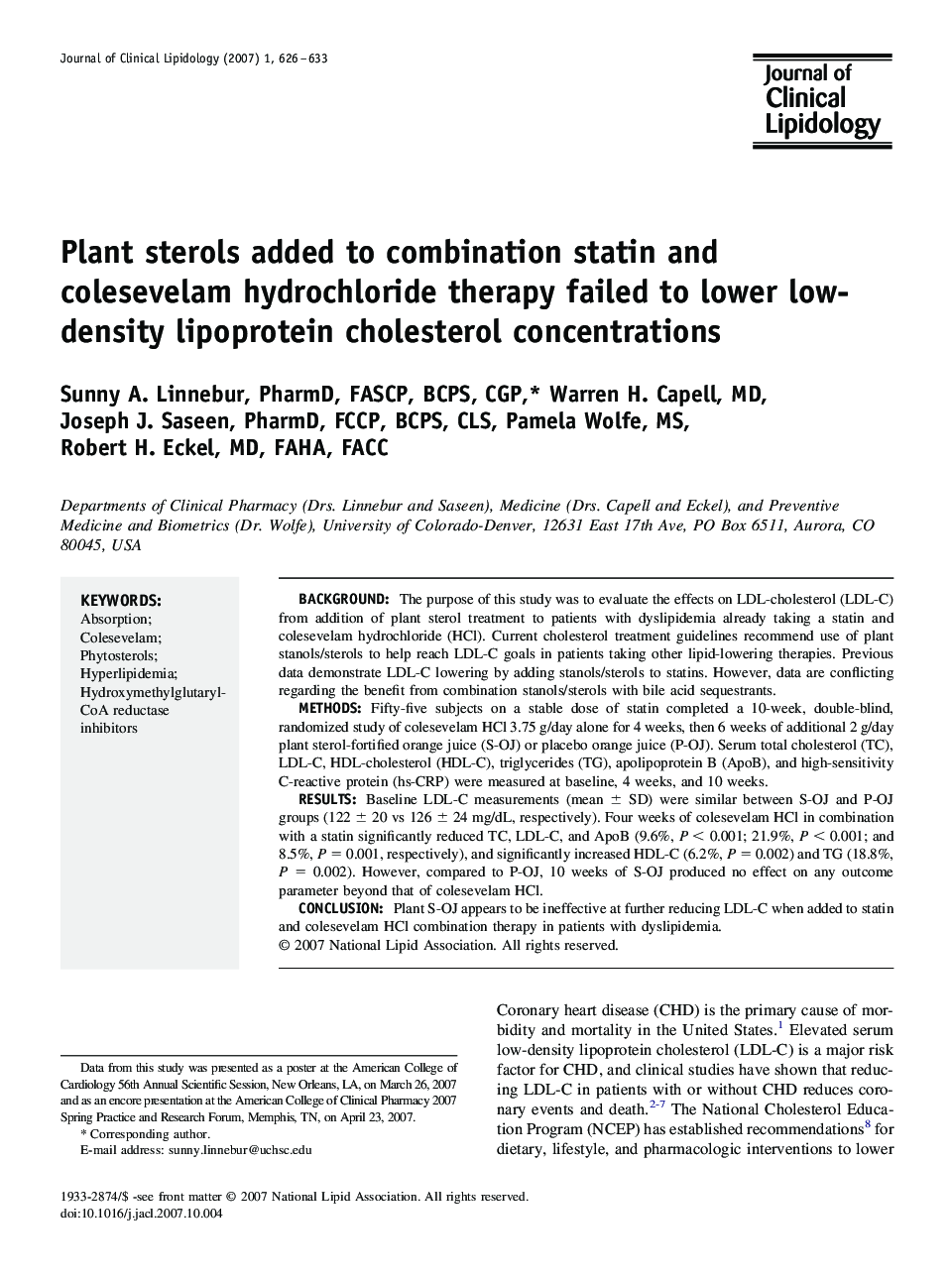| Article ID | Journal | Published Year | Pages | File Type |
|---|---|---|---|---|
| 2967004 | Journal of Clinical Lipidology | 2007 | 8 Pages |
BackgroundThe purpose of this study was to evaluate the effects on LDL-cholesterol (LDL-C) from addition of plant sterol treatment to patients with dyslipidemia already taking a statin and colesevelam hydrochloride (HCl). Current cholesterol treatment guidelines recommend use of plant stanols/sterols to help reach LDL-C goals in patients taking other lipid-lowering therapies. Previous data demonstrate LDL-C lowering by adding stanols/sterols to statins. However, data are conflicting regarding the benefit from combination stanols/sterols with bile acid sequestrants.MethodsFifty-five subjects on a stable dose of statin completed a 10-week, double-blind, randomized study of colesevelam HCl 3.75 g/day alone for 4 weeks, then 6 weeks of additional 2 g/day plant sterol-fortified orange juice (S-OJ) or placebo orange juice (P-OJ). Serum total cholesterol (TC), LDL-C, HDL-cholesterol (HDL-C), triglycerides (TG), apolipoprotein B (ApoB), and high-sensitivity C-reactive protein (hs-CRP) were measured at baseline, 4 weeks, and 10 weeks.ResultsBaseline LDL-C measurements (mean ± SD) were similar between S-OJ and P-OJ groups (122 ± 20 vs 126 ± 24 mg/dL, respectively). Four weeks of colesevelam HCl in combination with a statin significantly reduced TC, LDL-C, and ApoB (9.6%, P < 0.001; 21.9%, P < 0.001; and 8.5%, P = 0.001, respectively), and significantly increased HDL-C (6.2%, P = 0.002) and TG (18.8%, P = 0.002). However, compared to P-OJ, 10 weeks of S-OJ produced no effect on any outcome parameter beyond that of colesevelam HCl.ConclusionPlant S-OJ appears to be ineffective at further reducing LDL-C when added to statin and colesevelam HCl combination therapy in patients with dyslipidemia.
